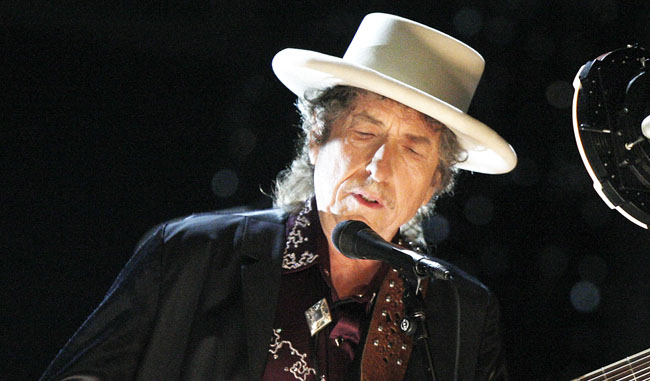
It shouldn’t come as any big surprise, but Bob Dylan is just as good at talking as he as is at writing lyrics. The Nobel Prize in Literature winner came off as positively eloquent in a rare interview he gave to writer Bill Flanagan. The wide-ranging talk covered all manner of subjects, but nothing stood out quite as much as his description of rock and roll.
“It was skeleton music, came out of the darkness and rode in on the atom bomb and the artists were star headed like mystical Gods. Rhythm and blues, country and western, bluegrass and gospel were always there — but it was compartmentalized — it was great but it wasn’t dangerous. Rock and roll was a dangerous weapon, chrome plated, it exploded like the speed of light, it reflected the times, especially the presence of the atomic bomb which had preceded it by several years. Back then people feared the end of time. The big showdown between capitalism and communism was on the horizon. Rock and roll made you oblivious to the fear, busted down the barriers that race and religion, ideologies put up. We lived under a death cloud; the air was radioactive. There was no tomorrow, any day it could all be over, life was cheap. That was the feeling at the time and I’m not exaggerating… Jerry Lee Lewis came in like a streaking comet from some far away galaxy. Rock and roll was atomic powered, all zoom and doom. It didn’t seem like an extension of anything but it probably was.”
In addition to that, the interview is peppered with funny and self-deprecating observations that span his entire career, along with allusions to Taylor Swift, and a short anecdote about bailing on Elvis. But while some of his more curt answers prove that he’s still got a healthy amount of curmudgeonly wit, it’s the descriptions you’ll keep coming back to. Here’s how he describes getting older and maybe wiser.
“In my 20s and 30s I hadn’t been anywhere. Since then I’ve been all over the world, I’ve seen oracles and wishing wells. When I was young there were a lot of signs along the way that I couldn’t interpret, they were there and I saw them, but they were mystifying. Now when I look back I can see them for what they were, what they meant. I didn’t understand that then, but I do now. There is no way I could have known it at the time.”
The whole interview is worth your time and may it be the final nail in the coffin for the Nobel naysayers. Stream a selection of Dylan’s upcoming album Triplicate below:
[protected-iframe id=”504298263c7c90a5f5f8d9a75e806f28-60970621-76566046″ info=”https://www.npr.org/player/embed/520841609/520944530″ width=”100%” height=”365″ frameborder=”0″]






